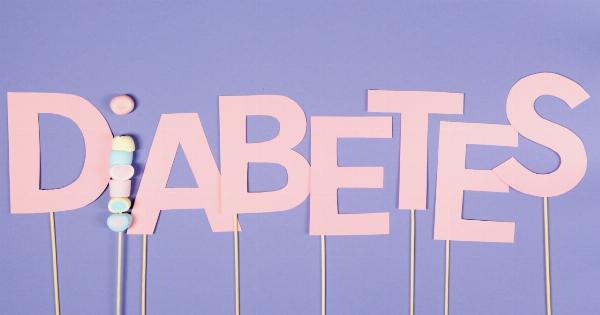Sugar, oh how sweet it is! From sugary beverages to decadent desserts, our love affair with this sweet substance seems to know no bounds.
While indulging in a sugary treat every once in a while can be a harmless pleasure, overdoing it can have serious consequences for our health. In this article, we explore the risks associated with two days of sugar indulgence and the potential impact it can have on our bodies.
The Sugar Rush: What Happens When We Consume Sugar
When we consume sugar, our bodies go through a series of processes to break it down and absorb it. The sugar is broken down into glucose, which is then released into our bloodstream.
This causes a rapid increase in blood sugar levels, leading to what is commonly known as a sugar rush. During this sugar rush, our bodies experience a surge of energy and a temporary feeling of euphoria.
However, this sudden spike in blood sugar levels triggers the release of insulin, a hormone responsible for managing blood sugar. Insulin helps move the glucose from our bloodstream into our cells, where it can be used as energy.
When our bodies are exposed to high levels of sugar over an extended period, this mechanism can become less effective, leading to insulin resistance.
Day One: Sugar’s Impact on Our Organs
On the first day of sugar indulgence, our bodies are immediately bombarded with a large amount of sugar. As we continue to consume sugary foods and drinks throughout the day, our organs work overtime to process and metabolize the excess sugar.
Here’s a closer look at how this impacts some of our vital organs:.
1. Liver
The liver plays a crucial role in metabolizing sugar. When we consume excess sugar, the liver is overloaded and must convert it into fat. Over time, this can lead to a condition known as fatty liver disease.
2. Pancreas
The pancreas releases insulin to help regulate blood sugar levels. With a constant influx of sugar, the pancreas must work harder to produce insulin. This increased demand can eventually lead to the development of type 2 diabetes.
3. Brain
The brain relies on a steady supply of glucose to function properly. However, excessive sugar consumption can impair cognitive function and contribute to memory problems and difficulty focusing.
4. Heart
High sugar intake can increase the risk of heart disease by contributing to obesity, high blood pressure, and inflammation.
Day Two: The Aftermath of Sugar Overload
After a day of sugar indulgence, our bodies may experience a variety of adverse effects. Here are some of the potential consequences that can occur on the second day:.
1. Energy Crash
Following the initial sugar rush, our energy levels plummet as the spike in blood sugar subsides. This crash can leave us feeling fatigued and lethargic throughout the day.
2. Mood Swings
Excessive sugar consumption can disrupt the balance of neurotransmitters in the brain, leading to mood swings, anxiety, and irritability.
3. Sugar Addiction
The more sugar we consume, the more our bodies crave it. Overindulgence in sugar can contribute to the development of a sugar addiction, making it even more challenging to cut back in the future.
4. Increased Inflammation
Sugar triggers an inflammatory response in the body, which can exacerbate existing conditions such as arthritis, acne, and chronic pain.
The Road to Recovery
After two days of sugar indulgence, it’s essential to give our bodies the chance to recover and reset. Here are a few steps we can take:.
1. Hydration
Drinking plenty of water helps flush out toxins and aids in the detoxification process. Aim to drink at least eight glasses of water per day.
2. Balanced Diet
Focus on whole, nutrient-dense foods to provide your body with the necessary vitamins and minerals it needs for recovery. Incorporate lean proteins, fruits, vegetables, and whole grains into your meals.
3. Physical Activity
Engaging in regular exercise helps boost the metabolism, burn excess calories, and improve overall well-being. Aim for at least 30 minutes of moderate-intensity exercise most days of the week.
4. Mindful Eating
Practice mindful eating by paying attention to your body’s hunger and fullness cues. Be aware of the types and amounts of sugar you consume, making an effort to limit your intake.
Conclusion: Tread Carefully on the Sweet Side
Indulging in the occasional sweet treat is a delightful part of life, but it’s essential to approach sugar with caution.
By understanding the potential risks associated with excessive sugar consumption and taking steps towards moderation, we can prioritize our health while still enjoying the sweetness life has to offer.





























